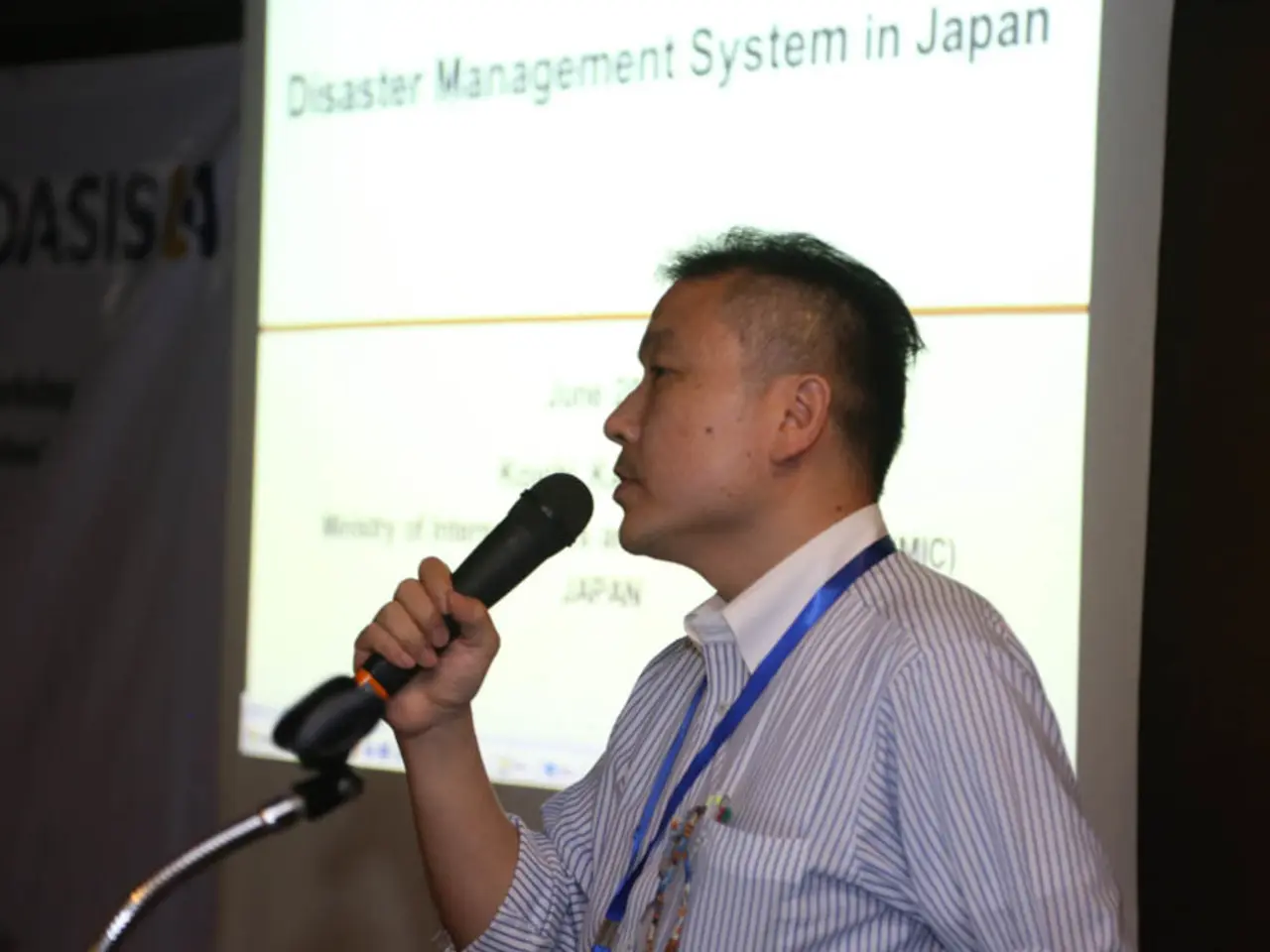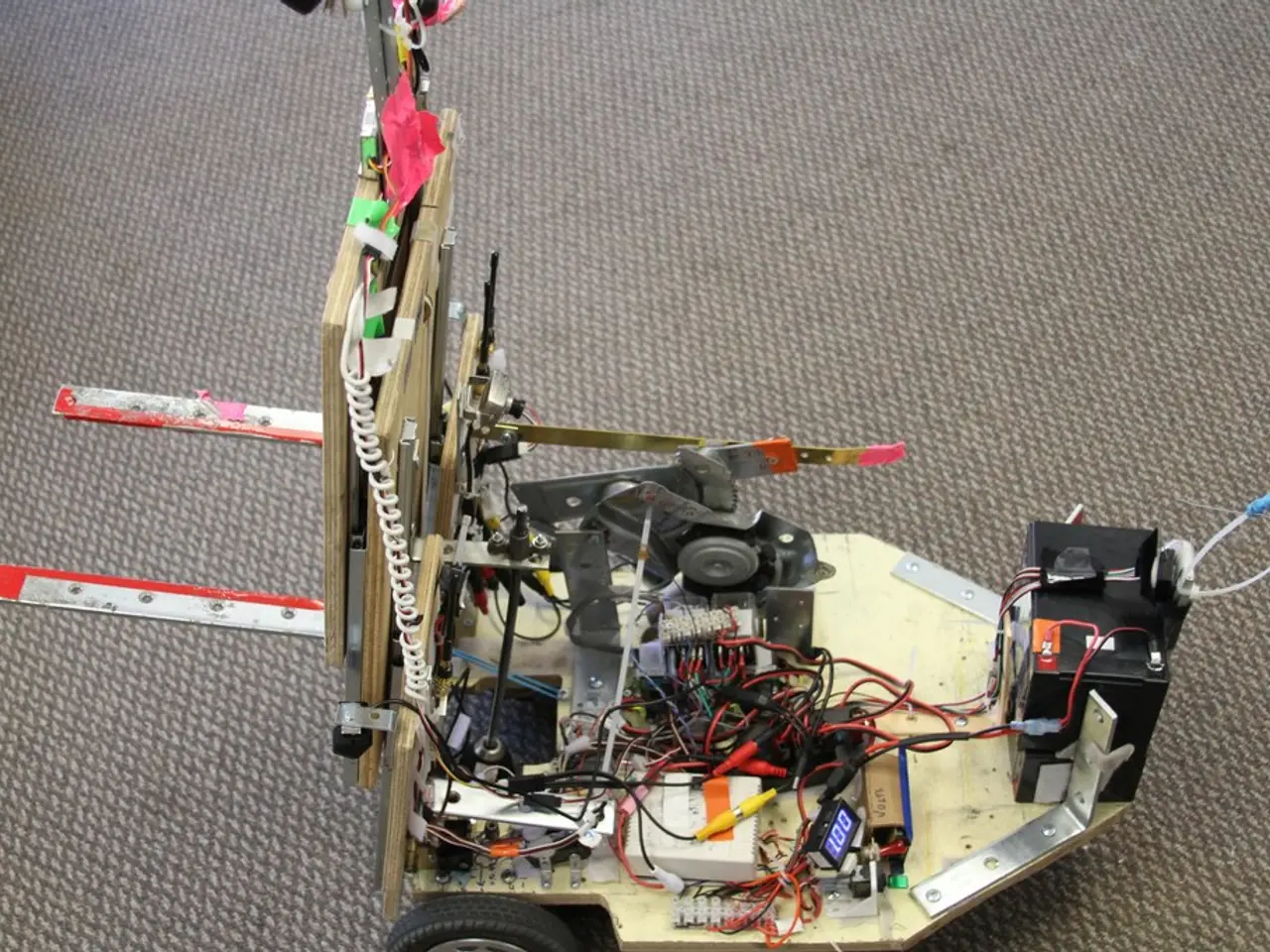U.S.-Japan Discussions Advance on Cybersecurity Matters at Significant Level
In the heart of Tokyo, the 10th U.S.-Japan Cyber Dialogue took place, marking a significant milestone in the ongoing efforts to strengthen cybersecurity resilience and cooperation between the two nations.
This historic event, the first to include industry participation in its ten-year history, brought together key players from both governments and the private sector. The U.S. government delegation was led by Deputy Assistant Secretary Liesyl Franz from the U.S. Department of State, while Jordan Heiber, Vice President for International Digital Economy Policy at the U.S. Chamber, led the U.S. industry delegation. On the Japanese side, Akihiro Wada, Chairman of the Working Group on Cyber-Security Enhancement at Keidanren, led the industry group.
The dialogue focused on critical issues, including the need for policy alignment, information sharing, joint exercises, and legal reforms to counter growing cyber threats effectively. One of the main topics of discussion was the alignment of cybersecurity policy frameworks to improve collective defense and cyber deterrence, particularly in response to threats from state actors such as North Korea.
Japan's recent passage of the Active Cyber Defence (ACD) Act was a significant step towards enhancing its cybersecurity posture. The Act grants the government the authority to establish offices and capabilities for defensive cyber capabilities. Japan is working to harmonise its cyber policies with partners in the Five Eyes intelligence alliance, including the U.S., to strengthen resilience.
The dialogue also emphasised the importance of information sharing and joint exercises. Both countries encouraged regular bilateral and trilateral cyber exercises, such as Exercise Blue-Spectrum, to enhance detection, response capabilities, and interoperability among cyber professionals.
The U.S. government is also focusing on cyber resilience, with plans for policy coordination under the National Cyber Director and continued support for agencies like the Cybersecurity and Infrastructure Security Agency (CISA), despite budgetary challenges.
Looking ahead, both sides plan to deepen coordination on offensive and defensive cyber operations, leveraging Japan’s new legal framework to neutralise cyber threats proactively. Japan aims to strengthen its cyber defense command and decision-making processes to enable more agile cooperation with U.S. counterparts and to better address cyber warfare challenges.
Broader regional cooperation is anticipated as Japan is encouraged to support cyber resilience in the Pacific, helping countries build domestic internet infrastructure and secure communications, thereby enhancing regional stability.
U.S. firms are ready to partner with their Japanese counterparts to further bolster Japan's cyber posture. The Chamber will continue to press the Government of Japan to adopt standards and regulations making government and corporate information systems easier to use, and more affordable, accessible, and secure.
The dialogue also highlighted the role of Open-Source Code in cybersecurity, with many governments relying on it for their cybersecurity posture, leaving them vulnerable to attack vectors. Shared data can be used to improve AI models for threat detection and prevention. Deeper U.S.-Japan technology collaboration is essential for successfully implementing the ACD Act and improving Japan's cyber posture and incident response.
The Government of Japan was led by Deputy Assistant Minister Yukio Saita from the Ministry of Foreign Affairs, and Kelly Primrose, Senior Manager for the U.S.-Japan Business Council at the U.S.-Japan Business Council's website, played a key role in organising the event.
The 10th U.S.-Japan Cyber Dialogue reinforced the commitment to intensify cybersecurity collaboration through policy alignment, information sharing, joint exercises, and legal reforms to counter growing cyber threats effectively. The partnership will continue to evolve with a focus on both defensive measures and deterrence capabilities, incorporating private sector contributions and regional outreach. ODA plays a key role in enabling digital adoption and improving the quality and safety of digital infrastructure in developing countries, further strengthening the global cybersecurity landscape.
- The U.S. industry delegation, led by Jordan Heiber from the U.S. Chamber, participated in the 10th U.S.-Japan Cyber Dialogue, marking the first time industry representation was included in the event's history.
- The dialogue focused on critical issues, including the need for policy alignment, information sharing, joint exercises, and legal reforms to combat growing cyber threats effectively.
- Akihiro Wada, Chairman of the Working Group on Cyber-Security Enhancement at Keidanren, led the Japanese industry group during the discussions.
- One of the main topics of discussion was the alignment of cybersecurity policy frameworks to improve collective defense and cyber deterrence, particularly in response to threats from state actors like North Korea.
- The U.S. government is focusing on cyber resilience, with plans for policy coordination under the National Cyber Director and continued support for agencies like the Cybersecurity and Infrastructure Security Agency (CISA).
- The dialogue also highlighted the importance of Open-Source Code in cybersecurity, with governments relying on it potentially leaving them vulnerable to attack vectors.
- The Chamber of Commerce, in collaboration with U.S. firms, continues to advocate for the adoption of standards and regulations that make government and corporate information systems more affordable, accessible, and secure.




